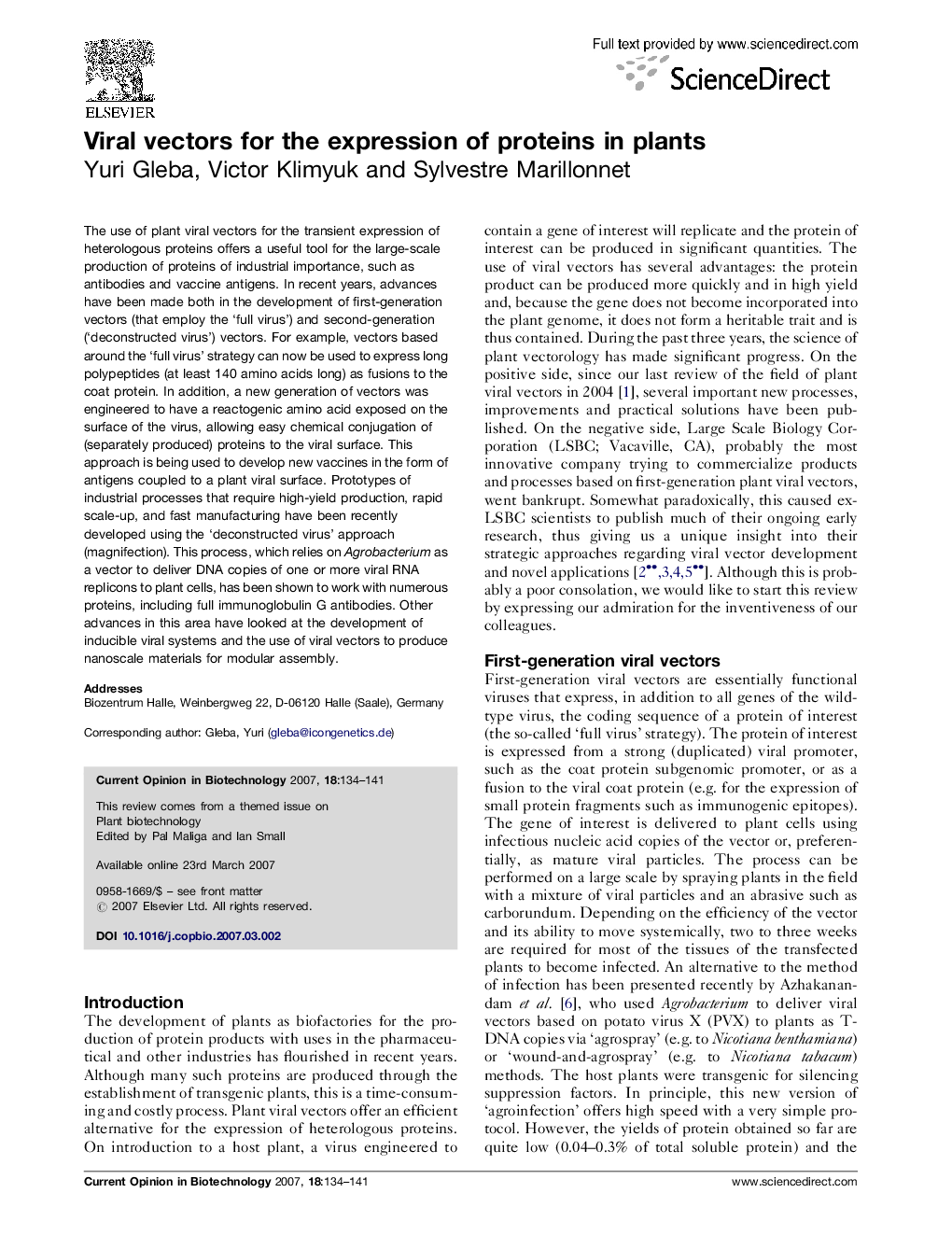| کد مقاله | کد نشریه | سال انتشار | مقاله انگلیسی | نسخه تمام متن |
|---|---|---|---|---|
| 16707 | 42528 | 2007 | 8 صفحه PDF | دانلود رایگان |

The use of plant viral vectors for the transient expression of heterologous proteins offers a useful tool for the large-scale production of proteins of industrial importance, such as antibodies and vaccine antigens. In recent years, advances have been made both in the development of first-generation vectors (that employ the ‘full virus’) and second-generation (‘deconstructed virus’) vectors. For example, vectors based around the ‘full virus’ strategy can now be used to express long polypeptides (at least 140 amino acids long) as fusions to the coat protein. In addition, a new generation of vectors was engineered to have a reactogenic amino acid exposed on the surface of the virus, allowing easy chemical conjugation of (separately produced) proteins to the viral surface. This approach is being used to develop new vaccines in the form of antigens coupled to a plant viral surface. Prototypes of industrial processes that require high-yield production, rapid scale-up, and fast manufacturing have been recently developed using the ‘deconstructed virus’ approach (magnifection). This process, which relies on Agrobacterium as a vector to deliver DNA copies of one or more viral RNA replicons to plant cells, has been shown to work with numerous proteins, including full immunoglobulin G antibodies. Other advances in this area have looked at the development of inducible viral systems and the use of viral vectors to produce nanoscale materials for modular assembly.
Journal: Current Opinion in Biotechnology - Volume 18, Issue 2, April 2007, Pages 134–141